CMN 215
Messages, Modalities, and Media

1. Course Description
The ability to interpret messages across modalities and media critically is fundamental to the transformation of information into meaningful knowledge. Using principles of discourse analysis and incorporating a range of examples and exercises, students will learn to identify, select, evaluate, and synthesize written and oral messages in ways that recognize the embeddedness of the interpretive process within its larger ethical, social, political and technological dimensions.
Last Revised
Prerequisites
CMN200 or CMN279. Note: This course is available only to Professional Communication and Creative Industries
Delivery
Lecture: 3 hours
2. Course Objectives & Learning Outcomes
- To understand the mechanisms and forces of media industry
- To understand a range of theoretical approaches that frame the interpretive process, including e.g. media and mass communication theory, media literacy
- To recognize the social, political, ethical and technological contexts that impact the interpretive process
- To use key discourse analysis strategies to critically evaluate oral and written text in real and virtual environments
3. Topics Covered
- Media and mass communication theory
- Media literacy
- Techniques of interpretation
- Applications
4. Teaching Method
Workshops and Lectures
Teaching methods will include interactive lectures and individual and group work activities in class or online.
Graded Assignments
Evaluation will include written assignments, a mid-term, and a presentation.
5. Course Materials
Gasher, M., Skinner, D., & Lorimer, R. (2016). Mass Communication in Canada. 8th edition. Toronto: Oxford University Press. ISBN 978-0199013159
Additional material (current news/media texts) will be assigned.
6. Policy
6.1 University Policies
Students are required to adhere to all applicable university policies found in their Online course shell in D2L and the Course Outline Policies.
6.2 Print and Digital Copying Guidelines:
Toronto Metropolitan University complies with Canada’s Copyright Act which protects both creators/owners and users of copyrighted materials. Students should familiarize themselves with TMU Copyright policies and procedures, and contact the Copyright and Scholarly Engagement Librarian at copyrt@torontomu.ca for questions, concerns and clarification of the copyright rules.
6.3 Turnitin.com
Turnitin.com is a plagiarism prevention and detection service to which Toronto Metropolitan University subscribes. It is a tool that helps instructors determine the similarity between student work and the work of other students who have submitted papers to the site (at any university), Internet sources, and a wide range of books, journals, and other publications. While it does not contain all possible sources, it gives instructors some assurance that students’ work is their own. No decisions are made by the service; it generates an “originality report,” which instructors must evaluate to judge whether something is plagiarized.
Students agree by taking this course that their written work will be subject to submission for textual similarity review to Turnitin.com. All submitted papers will be included as source documents in the Turnitin.com reference database solely for the purpose of comparing the similarity of such papers. Use of the Turnitin.com service is subject to the terms-of-use agreement posted on the Turnitin.com website. Students who do not want their work submitted to this plagiarism detection service must, by the end of the second week of class, consult with their instructor to make alternative arrangements. Even when an instructor has not indicated that a plagiarism detection service will be used, or when a student has opted out of the plagiarism detection service, if the instructor has reason to suspect that an individual piece of work has been plagiarized, the instructor is permitted to submit that work in a non-identifying way to any plagiarism detection service.
6.4 Email Communication
Toronto Metropolitan University requires that any official or formal email communication from students be sent from their official Toronto Metropolitan University electronic accounts.
6.5 Video and Audio Recording
No video or audio recording is permitted in class without the express permission of the instructor.
7. Learning Management System
Toronto Metropolitan University supports Brightspace by D2L as its official Learning Management System. University Policies governing Brightspace have been documented at the Courses @ Toronto Metropolitan University Privacy and Security website.

